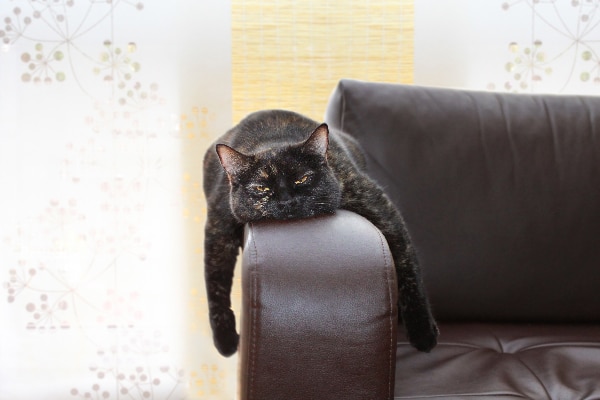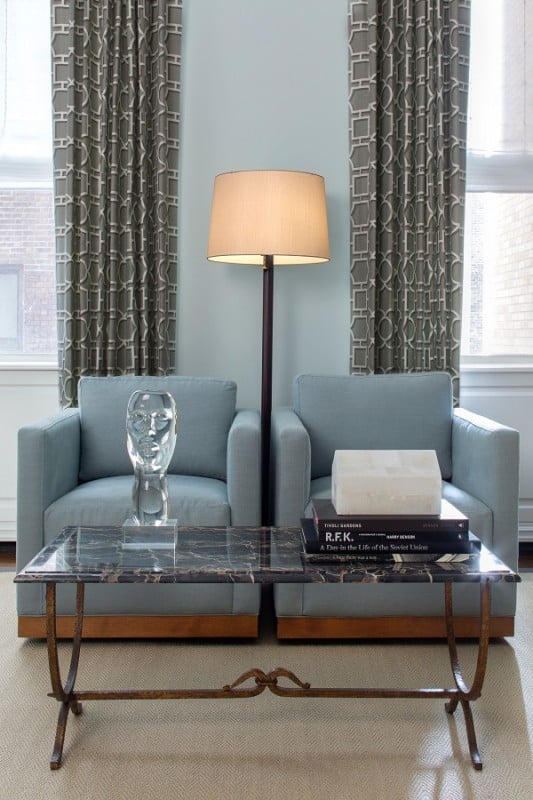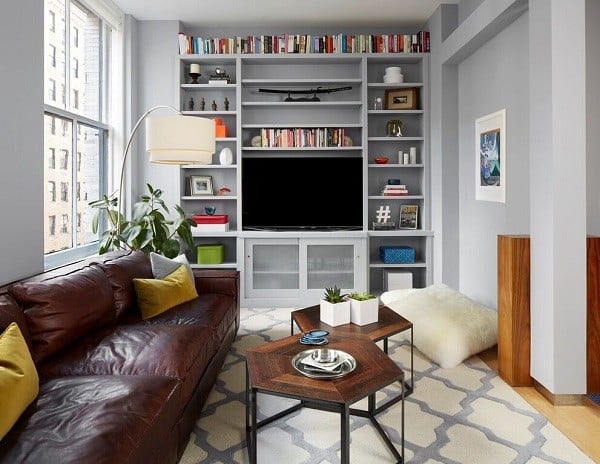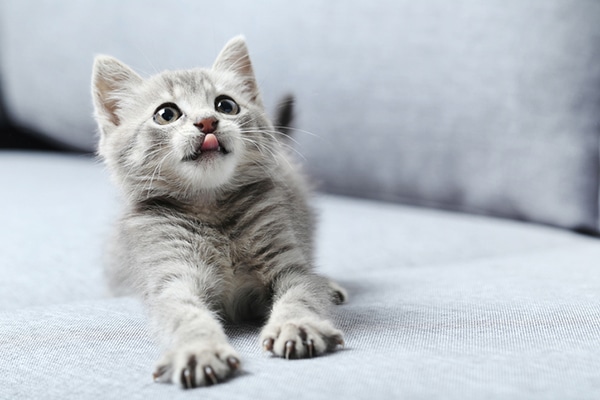Savvy cat guardians know that to stop cats from scratching furniture, one must provide correct stimulation and alternatives for scratching. Cats love well designed scratching posts, and the placement of such alternatives to furniture can make all the difference. I’ve done this, and my cats don’t bother my new furniture at all.
Cats are also clever about finding alternatives to scratching posts. My female Jamie loves to sharpen her claws on this plastic non-skid base for the cat water bowls. Its little stubs are just stiff enough to provide the texture that she likes.
What if we took that concept in the opposite direction? Can you pick furniture that cats won’t scratch? Specifically, I wondered whether furniture containing more hard surfaces would do this, or furniture whose fabric has no “nap” (or obvious texture). There’s also microfiber. My husband and I bought a microfiber couch, and the cats show no interest in it.
I asked several furniture experts and got lots of ideas. Responses varied, and some contradicted each other. Regardless, you will probably get some ideas for what to try.

What fabrics will keep cats from scratching? Photography © liveostockimages | iStock / Getty Images Plus.
Cats won’t want to scratch furniture with full upholstery and recessed legs
Sean Juneja, co-founder and CEO of Decor Aid, offers this tip: Look for fully upholstered pieces with wood or metal recessed legs.
“The best fabrics are ultrasuede and leather, because a cat cannot claw into these,” Juneja said.
Avoid fabrics that snag easily, such as tweeds. It’s also difficult to remove pet hair from these types of textured fabrics.
Asked why full upholstery is important, Juneja said it keeps cats from clawing from any wood on the furniture.
“While most prefer something they can shred, there are cats that prefer wood,” Juneja said, and recessed legs are not accessible because they are hidden and smaller.
These chairs are covered with ultrasuede.

Photo via Decor Aid
And here is a leather couch and metal tables.

Photo via Decor Aid
Cat owners should choose furniture that holds its wear well
Chandler Elmore of Kuni Furniture had similar advice on choosing furniture that “holds its wear well,” although he was less positive about leather.
“The more a piece has of glass, metalwork and wood, it will wear better than leathers and suedes, which are typically decent materials,” Elmore said.
He pointed out that the “absolute worst materials for furniture” include chenille, velvet, wool, linen, silk and tweed.
Another expert advocates for leather, thin rugs and cat furniture
Donna Arbietman of Magnolia Brook said she gets many questions about cats and furniture, and that while each cat is different, she offers these guidelines:
- Cats in general don’t seem to like leather as much as other materials. “Leather is easy to clean and maintain, so it is always a safe bet.” Arbietman suggested applying scratch guard to the leather.
- Shaggy and jute rugs are the “perfect playground for cats to trim their nails on and have fun, so stick with thinner rugs with less hair.”
- Provide your cats with cat posts and a cat bed nearby. “When cats have their own furniture, they will be less inclined to ruin yours.”
Cat parents should pick chenille versus microfiber
Mike McCann of Wholesale Bar Stool Club says thin microfibers, which are often the least expensive items, are easily torn up by cats with claws.
“Microfibers are meant to be easily cleaned of stains and spills, not endure punctures or last for extended periods of time,” McCann said.
He said he believes that with cats, a chenille fabric is best: “It is more durable and will withstand more abuse from animals. It may be a little harder to clean, but it will outlast its cheaper microfiber counterpart.”
This contradicts the advice of Kuni Furniture’s Elmore above.
When it comes to furniture, cat owners should keep it simple
Finally, Tamalpais NatureWorks recommends modular furniture made of wood and steel joinery. William Callahan calls it the world’s healthiest and easiest to maintain furniture for people and pets.
“If a kitty (or a dog) destroys a table leg, just put a new one in its place,” Callahan said.
None of this furniture is upholstered, making it easy to clean and repair.
The bottom line on furniture that cats won’t scratch
Not every piece of advice will work in every situation. These furniture professionals had many ideas, including two that contradicted one another. We know that cats vary too — some cats might claw leather, some might not.
Tell us: Do you have any creative ideas or advice for choosing furniture that cats won’t scratch? What furniture have your cats scratched and what furniture have they left alone?
Thumbnail: Photography by 5second/Thinkstock.
This piece was originally published in 2016.
